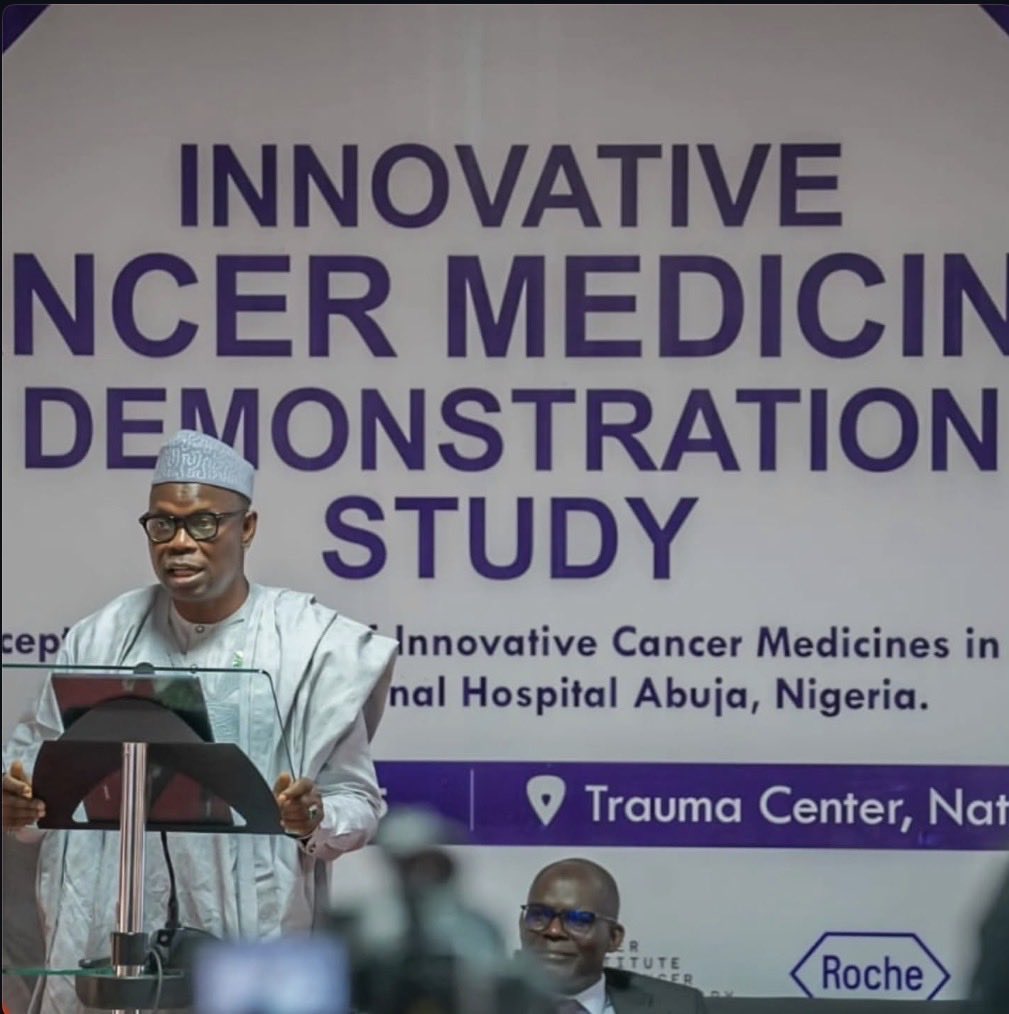The Federal Government (FG) has announced a step towards transforming cancer care in Nigeria with the enrolment of the first patient under the Innovative Cancer Medicine (ICM) Demonstration Project, a pioneering initiative introducing immunotherapy treatments into the nation’s healthcare system.
The project, formally launched on Tuesday at the National Hospital, Abuja, marks a milestone in Nigeria’s commitment to ensuring equitable access to lifesaving cancer treatments.
Speaking at the event, the Honourable Minister of State for Health and Social Welfare, Dr. Iziaq Salako, reaffirmed the government’s resolve to bridge the gap in access to advanced medical innovations between high-income and developing countries.
Read Also: Surgeons remove, reimplant pregnant woman’s womb in cancer treatment
“This milestone is a symbol of hope that patients in low- and middle-income countries will no longer have to wait decades to benefit from the same lifesaving innovations available elsewhere,” Dr. Salako stated.
The Innovative Cancer Medicine Demonstration Project is a collaboration between the Federal Ministry of Health and Social Welfare, the Clinton Health Access Initiative (CHAI), the Parker Institute for Cancer Immunotherapy (PICI), and pharmaceutical partners Bristol Myers Squibb (BMS) and Roche.
The initiative introduces nivolumab, a breakthrough immunotherapy drug that harnesses the body’s immune system to combat cancer and has already transformed treatment outcomes globally.
He emphasised that the project is more than a pilot programme, saying, “This is not merely a demonstration study. It is proof that innovative cancer care can be delivered safely, sustainably, and locally. Through this initiative, we will gather critical data to shape an African model of sustainable access to advanced medicines.”
The minister noted that the initiative aligns with the National Cancer Control Plan and the Renewed Hope Health Agenda of President Bola Tinubu, which prioritises early detection, local research, and affordable access to diagnostics and treatment.
He further revealed that the Federal Government has made unprecedented budgetary provisions in 2025 to strengthen cancer infrastructure nationwide, including the operationalisation of six regional cancer centres of excellence.
“The Federal Government recognises that oncology care remains one of the main reasons for outbound medical tourism. We are determined to reverse this trend by investing in infrastructure, prevention, and access to innovative treatment.”
He praised the National Institute for Cancer Research and Treatment (NICRAT), the National Agency for Food and Drug Administration and Control (NAFDAC), and the National Cancer Control Programme (NCCP) for advancing research ethics, regulatory efficiency, and workforce training.
Salako called on regulators to enable innovation through faster, transparent approvals while upholding safety standards. He also commended the National Hospital, Abuja, and project partners for their collaboration, stressing that innovation must ultimately serve the people.
“Let this partnership mark the beginning of a new era where no Nigerian dies unnecessarily because advanced care is out of reach,” he said. “Together, we can make Nigeria and indeed Africa a leader in world-class, patient-centred cancer care.”



